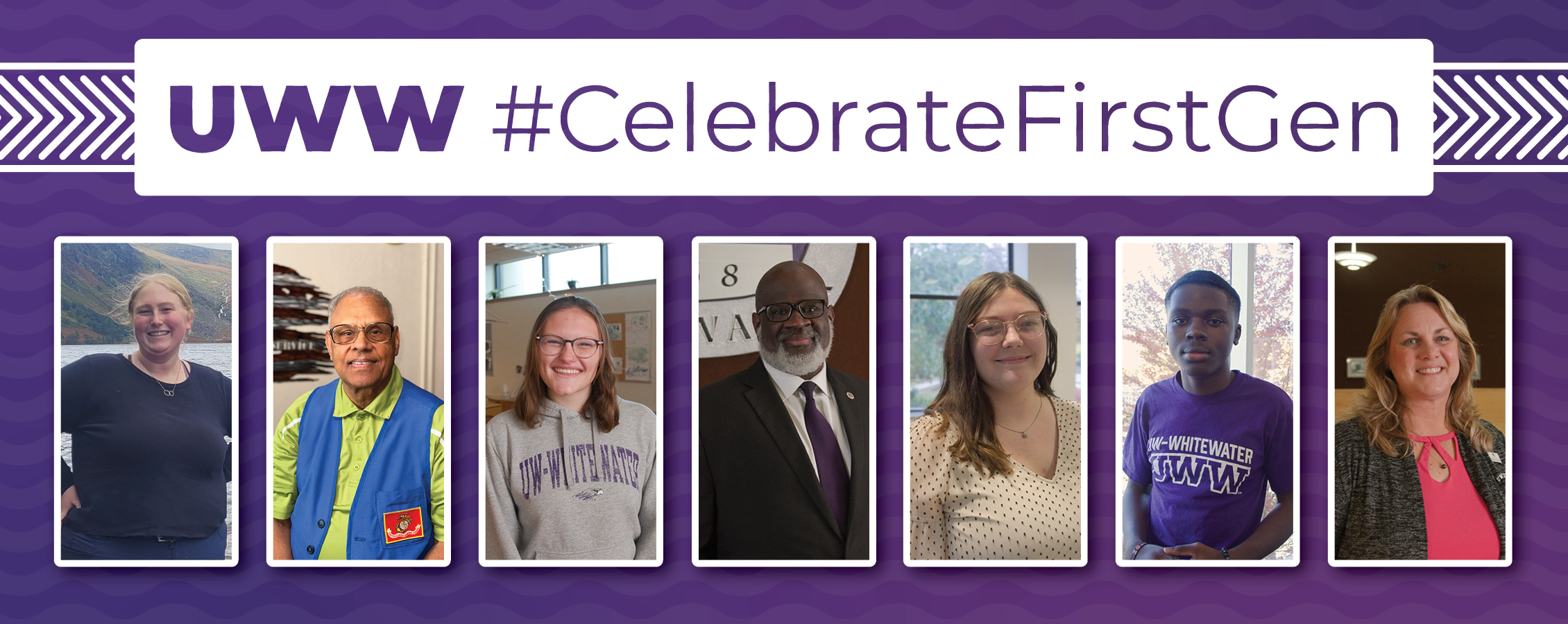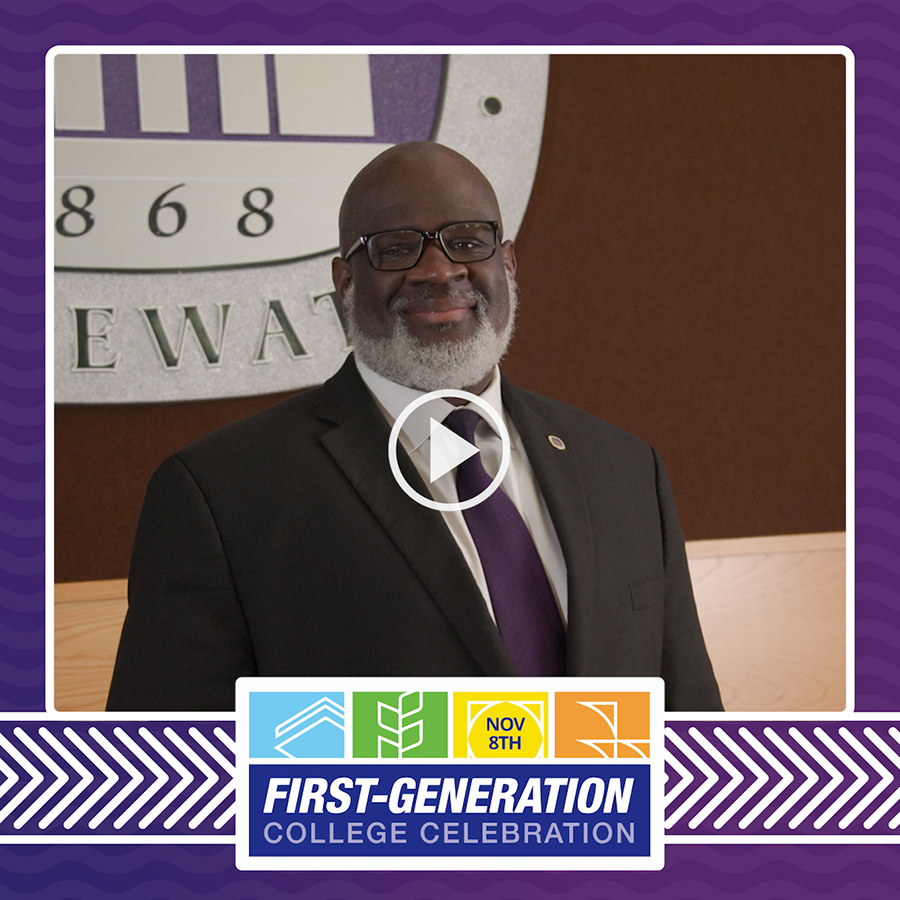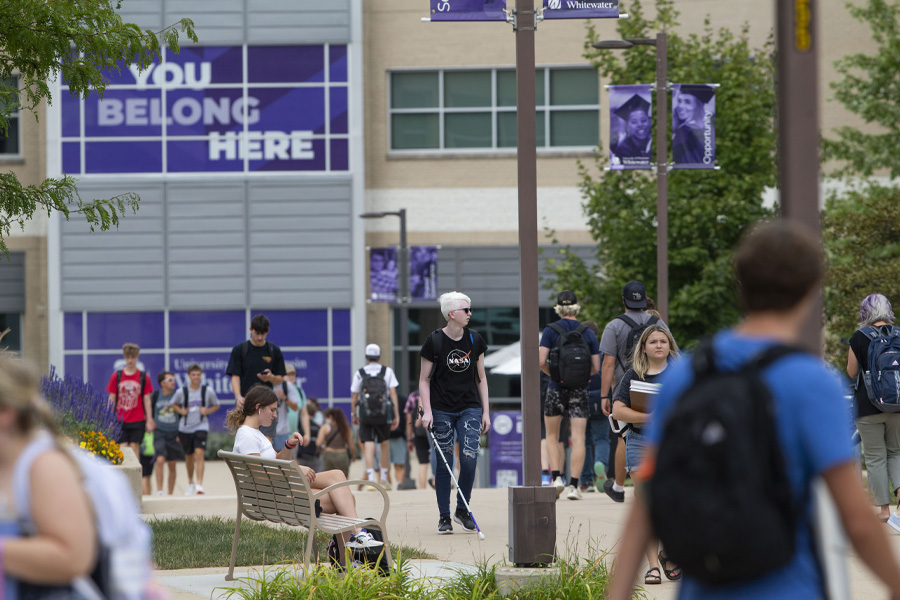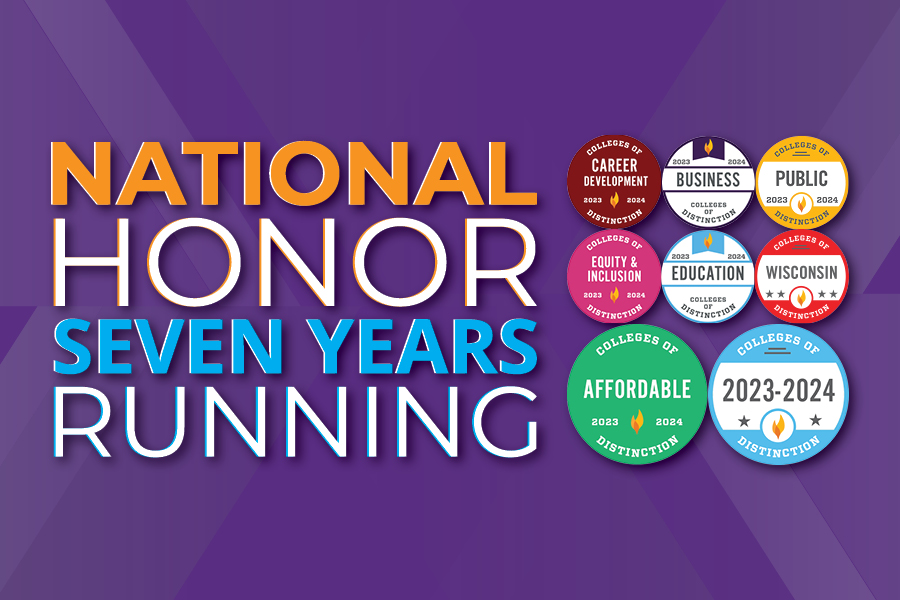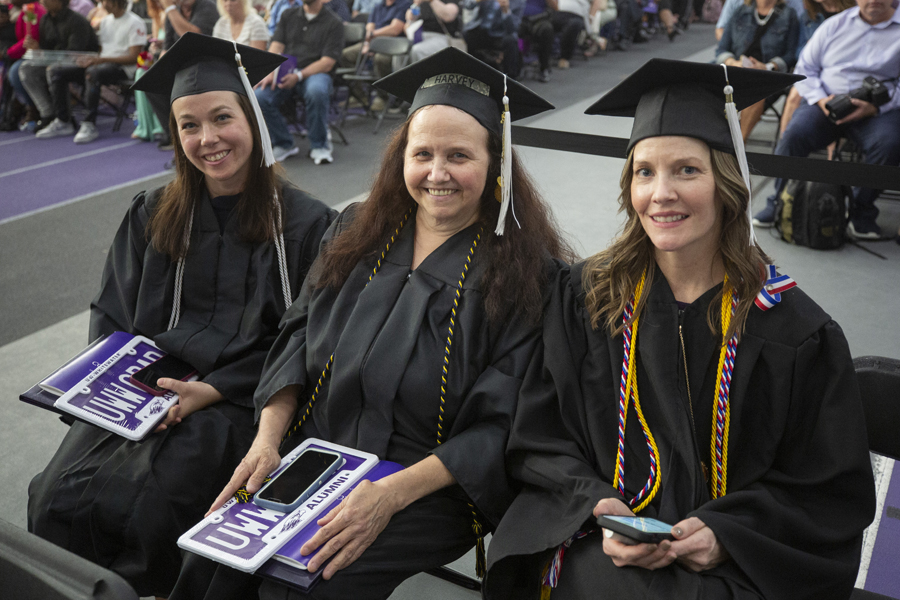UW-Whitewater celebrates its first-generation students
November 06, 2023
Written by Kristine Zaballos | Photos by Craig Schreiner, submitted | Video by Kyle Winter
A college education is their goal. Among their family members, they are proud trailblazers. And they have found a supportive home at a university known for championing students of all backgrounds.
First-generation students at the University of Wisconsin-Whitewater.
They make up a sizable percentage of the student body. More than one-third of Warhawks at the Whitewater campus — and almost 55% at the Rock County campus — are first-generation, meaning neither of their parents earned a four-year degree.
UW-Whitewater is proud to join in a national celebration of first-generation students on Wednesday, Nov. 8, by offering tabling events, social media posts and videos featuring stories of current and former students as well as campus leaders who are proud to celebrate their first-generation status.
One of the leaders to share their experience is Chancellor Corey A. King.
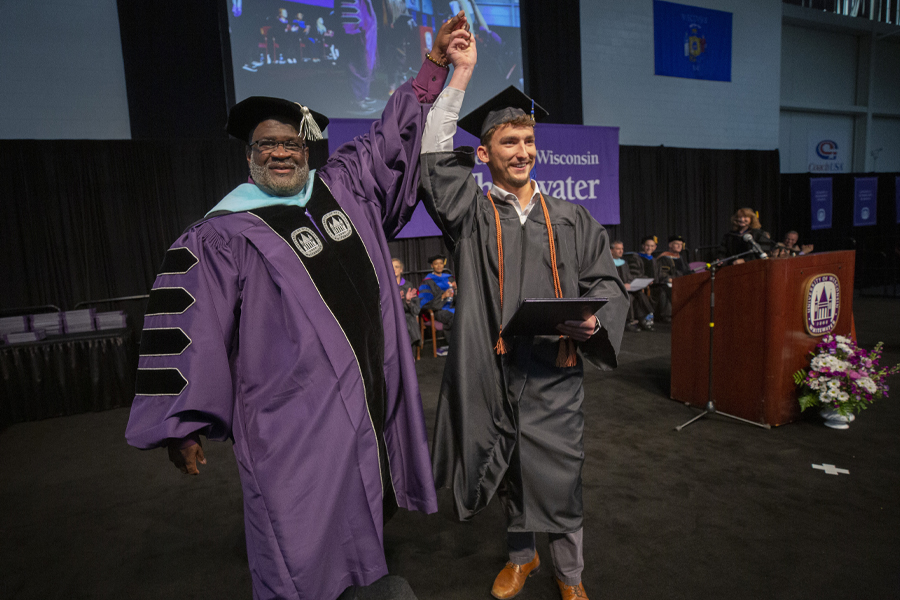
Chancellor Corey A. King celebrates with the final student crossing the stage during the morning commencement ceremony on Saturday, May 13, 2023. (UW-Whitewater photo/Craig Schreiner)
“I share all the time that I am a first-generation college student,” said King. “When I meet first-generation students on campus, I see in them the potential — knowing where I am as chancellor of this great university and where they will be in the next several years, given their opportunity, their hard work, and their dedication.”
“So the first time I meet them I see them,” he said. “And as I continue to talk to them I see who they will become. And that’s priceless.”
Chancellor King speaks to how college opened the world for him, from meeting people from various journeys and backgrounds and beliefs and ideas to gaining friends, in a brief video.
Another first-generation Warhawk is Cassie Parrell, a music education student from Black Earth who is currently studying abroad in Maynooth, Ireland. Cassie has made the Dean's List four times, was a member of the Hawk Squad — a leadership position that serves as a resource to new students and family members — and played with the Symphonic Wind Ensemble. Not having close family members who could help her navigate the complexities of higher education such as the FAFSA was initially hard for her, but over time she came to appreciate that she was able to chart her own path and become a much more organized person along the way.
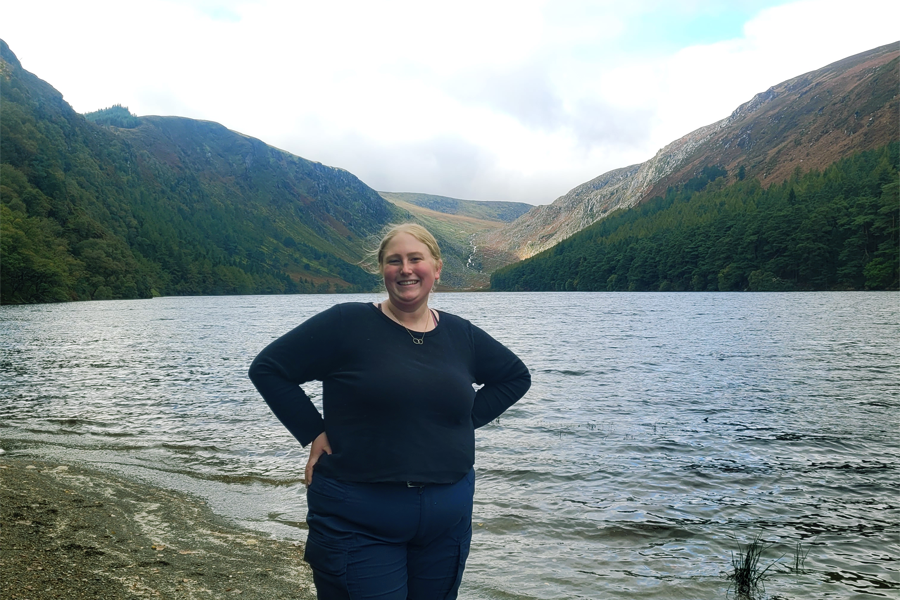
Cassie Parrell, who is a music education major from Black Earth, is studying abroad in Maynooth, Ireland, for the fall 2023 semester. It is the first time she has been out of the United States. (Submitted photo)
“Having to do everything myself made it clear I was all on my own,” said Parrell. “Coming to campus from a small town, it was eye-opening to see the different kinds of people. And the reality is everyone has their own path, everyone has their own story.”
The senior, who will be doing her student teaching in the spring, plans on teaching middle school band and then continuing in graduate school to earn a degree in higher education leadership.
“Working as a peer mentor and a Hawk Squad member opened my eyes to helping students transition to college,” she said. “And to the importance of working with parents. College opened my eyes to career paths I’d never seen.”
The First-Year Experience Program at UW-Whitewater, which manages the Hawk Squad Program, Learning Communities and transition programs like the student orientation program, SOAR, Warhawk Welcome and New Student Seminar, leads the way in setting all students up to be as successful as possible at UW-Whitewater. Targeted support for first-generation students includes a number of precollege programs, which provide the support, enrichment and inspiration that helps them strive for and achieve postsecondary access, and the King-Chávez Program, where up to 65% of students are first-gen.
“The King-Chávez Scholars Program is so valuable because it uses a peer-to-peer mentoring model, where the student mentors themselves are first-generation,” said John Dominguez, program director. “Having a mentor who has been through what you are going through and can understand, can make all the difference.”
On the Rock County campus, the TRIO Program serves 150 first-generation students, providing an extra level of academic advising and tutoring in core subjects. Tricia Clasen, dean of the College of Integrated Studies on that campus, is a first-generation student herself and brings that perspective to her predominantly first-generation students.
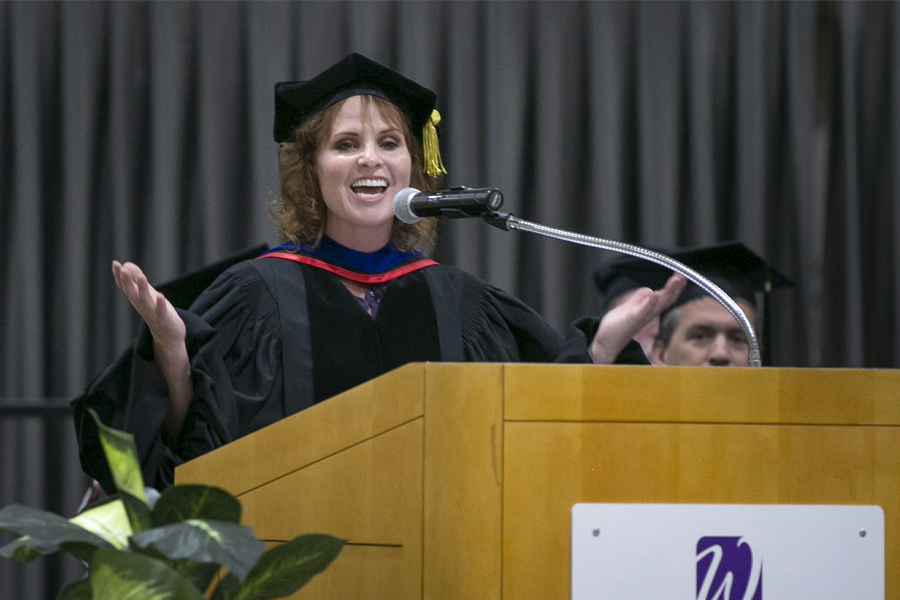
Patricia Clasen presides at her first commencement ceremony as dean of the College of Integrated Studies at UW-Whitewater at Rock County on Tuesday, May 17, 2022. (UW-Whitewater photo/Craig Schreiner)
“Being the first to do anything can be scary and overwhelming. It takes courage and resilience. That’s no different for first-generation college students who have to learn to navigate applications, financial aid, course selection, new vocabulary, and a whole college culture,” Clasen said.
“I’m proud of all our students for overcoming challenges to be successful students, but I’m especially impressed by the ways in which the first-generation students on the Rock County campus not only get through college, they thrive. I’ve watched students go from fearing they won’t make it through a semester, to becoming student government leaders, club presidents, and even peer advisors/mentors. They are the trailblazers of their families, cutting a path for generations to follow and flourish.”
The national First-Generation College Celebration is organized by the Center of First-Generation Student Success. According to the center, today 1 in 3 undergraduates in the U.S. — nearly 5 million students — identify as first-generation. Compared to legacy student peers, first-gen students have fewer financial resources ($41,000 median parental income vs. $90,000), pursue college-level education at lower rates (72% vs. 93%), and attain four-year degrees at lower rates (20% vs. 49%).
To the UW-Whitewater students who are first-generation and those who supported them along the way, Chancellor King has some advice.
“Be first, be proud,” he said. “Recognize your achievement, celebrate your success, and serve others.”

